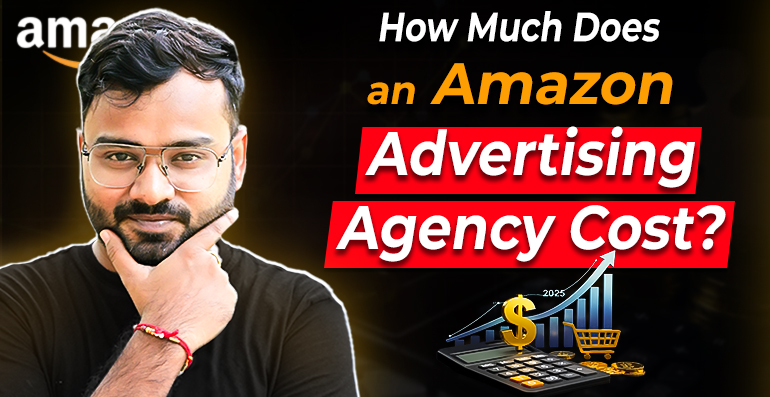- November 6, 2025

Hey there! If you’re thinking about advertising on Amazon, you’re probably wondering, “How much is this going to cost me?” Great question! Amazon Advertising is a powerful way to get your products or brand in front of millions of shoppers, and the best part is, it’s flexible enough to fit almost any budget. Whether you’re a small business owner, an e-commerce seller, or a self-published author, this guide will break down the costs of advertising on Amazon in a simple, human-friendly way. I’ll cover the different ad types, what affects your costs, and how to make your budget work hard for you. Plus, I’ve included a FAQ section to answer common questions and packed it with SEO-friendly tips to help this article shine on Google. Let’s dive in!
Before we talk dollars and cents, let’s quickly cover what Amazon Advertising is. It’s a pay-per-click (PPC) platform that lets you promote your products, brand, or content on Amazon’s website, apps, and even external sites. You only pay when someone clicks your ad, which makes it cost-effective since you’re not shelling out for just “views.” Amazon offers ad types like Sponsored Products, Sponsored Brands, Sponsored Display, and Amazon DSP, each with different goals, like boosting sales or building brand awareness. Costs vary depending on the ad type and your strategy, so let’s unpack it all.
The short answer? It depends! Amazon Advertising costs are flexible and driven by your choices—your budget, ad type, keywords, and competition all play a role. Here’s a breakdown of the key factors and what you can expect to spend.
Most Amazon Ads (Sponsored Products, Sponsored Brands, and Sponsored Display) operate on a PPC model. This means you set a bid—how much you’re willing to pay for a click—and you’re only charged when someone clicks your ad. Bids typically range from $0.10 to $5 or more, depending on the product category and keyword competition. For example:
You control your spending by setting a daily budget, which can be as low as $1 but is often $5–$20 for small businesses to see results. There’s no minimum spend, so you can start small and scale up.
To advertise products on Amazon, you need a Professional Seller Account (via Seller Central), which costs $39.99/month in the U.S. This fee isn’t specific to advertising—it covers access to Seller Central’s advanced tools, like analytics and ad creation. If you’re not selling products (e.g., promoting a book or app), you can use a regular Amazon account for some ad types, skipping this fee.
Vendors (who sell to Amazon via Vendor Central) don’t pay this fee, but Vendor accounts are invitation-only. If you’re brand-registered, there’s no extra cost for Brand Registry, but you need a trademark, which can cost $225–$400 to file.
Each Amazon ad type has its own cost structure. Here’s a look at the main options:
These ads promote individual products in search results or on product pages. They’re the most affordable and popular choice for beginners.
These banner-style ads showcase your brand and multiple products, linking to a custom page or Amazon Store. They’re pricier due to their visibility.
These retargeting ads appear on Amazon and external sites, targeting shoppers who viewed your products or similar items.
DSP is for advanced advertisers, offering display and video ads across Amazon’s sites (e.g., IMDb) and the web. It’s not PPC-based but uses programmatic buying.
Example: A $50,000 campaign might run for a month, targeting specific audiences with video ads.
Costs depend heavily on the keywords you target and your product category. Competitive categories like electronics or fashion have higher bids due to demand. For example:
Long-tail keywords (specific phrases like “non-slip yoga mat for beginners”) are often cheaper and convert better, saving you money.
ACoS measures your ad efficiency: it’s your ad spend divided by ad-driven sales. For example, if you spend $10 on ads and earn $50 in sales, your ACoS is 20% ($10 ÷ $50). A good ACoS is typically 15–30%, but it varies by category. High ACoS means you’re spending more than you’re earning, so optimize keywords and listings to keep costs down.
Since you’ve explored Amazon PPC strategies and low ACoS campaigns (from our past chats), starting with a $10–$20 daily budget for Sponsored Products targeting long-tail keywords could align with your goal of cost-effective advertising.
Copyright © 2024 adszenith.com. All Rights Reserved